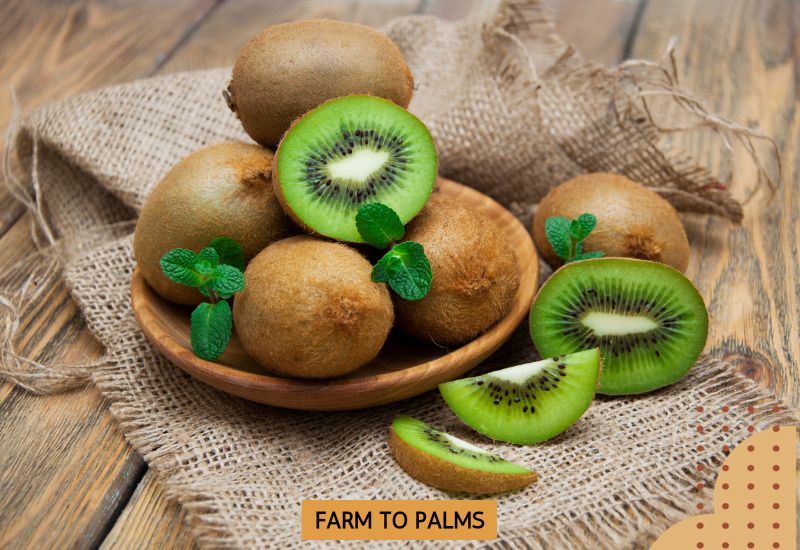In our recent publication regarding foods that enhance immune function, an assortment of fruits rich in nutrients were highlighted for their potential benefits to immune health. Amongst these fruits, Kiwi is a superfood with numerous health advantages, particularly during winter.
Interested in understanding why it is advisable to incorporate more Kiwi into your diet? Please continue reading to discover ten intriguing benefits of kiwi fruit and suggestions on how to include it in your daily meals.
What is Kiwi?
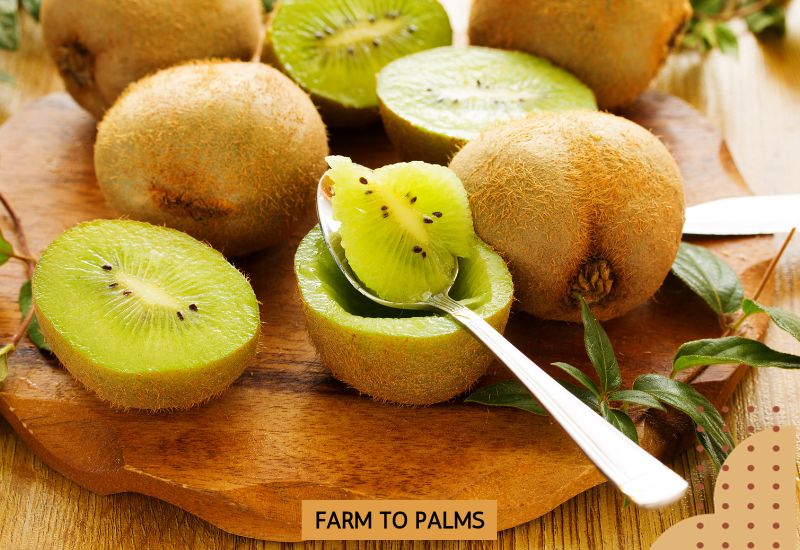
Kiwis, also known as kiwifruit, are a variety of fruits indigenous to the mountainous regions and hillsides of Southwest China. Today, they are cultivated in numerous other parts of the globe, including New Zealand, a leading producer of this widely consumed fruit. Additionally, kiwis are grown in various locations throughout the United States.
The introduction of kiwis to New Zealand can be attributed to Isabel Fraser, a schoolteacher who transported kiwi seeds back to her homeland after she traveled to China in 1904. Formerly known as Chinese gooseberry, the fruit was named “kiwi” by fruit exporters in New Zealand, inspired by the flightless kiwi birds unique to the country.
From a botanical standpoint, kiwis fall under the classification of berries. The two most commonly consumed species of Kiwi are Actinidia deliciosa and A. chinensis. The Hayward kiwi, a type of A. deliciosa kiwi, is famous.
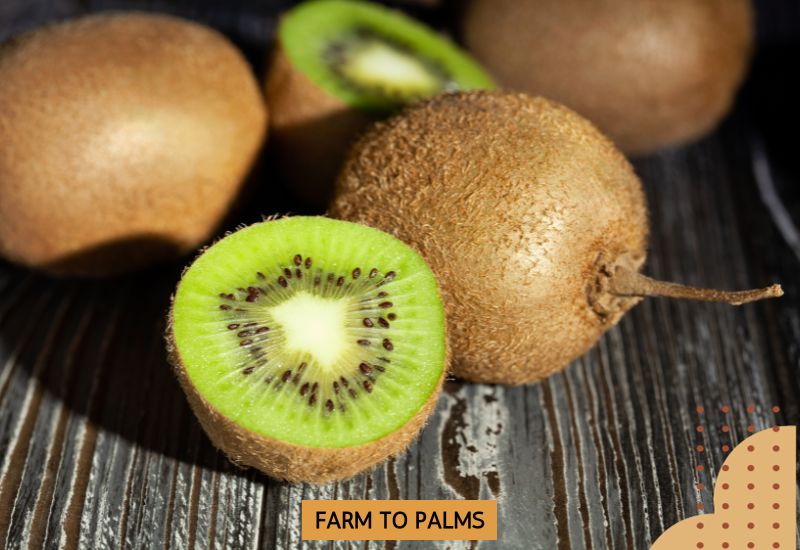
It is named after Hayward Wright, who was crucial in popularizing Kiwis in New Zealand during the 1920s. Hayward kiwis possess an oval shape similar to a large hen’s egg. They feature fuzzy brown skin, vibrant green flesh, and tiny black seeds.
In addition to the green-fleshed Hayward kiwis, yellow-fleshed or golden varieties exist (A. chinensis). The distinction between the two lies in the presence of chlorophyll, a green pigment found exclusively in green kiwis.
Notably, kiwi berries and kiwis belong to the same plant family, Actinidia. However, they are distinct species. Kiwi berries are small fruits with edible skin resembling grapes, while kiwis are larger in size and possess thicker, fuzzy skin.
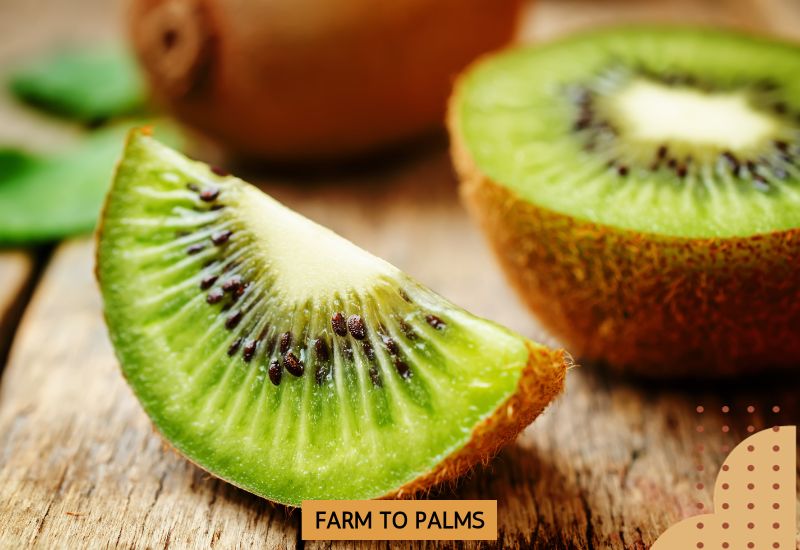
For most kiwi varieties, peeling off the skin before consumption is recommended. Yet, some individuals may prefer to consume the skin of golden or yellow Kiwi varieties as their skin is comparatively softer than green Kiwi.
In summary, kiwis are small fruits in green- and yellow-fleshed varieties. New Zealand serves as a prominent producer of kiwis, but these fruits are also cultivated in numerous other regions worldwide.
Kiwi Nutrition Facts
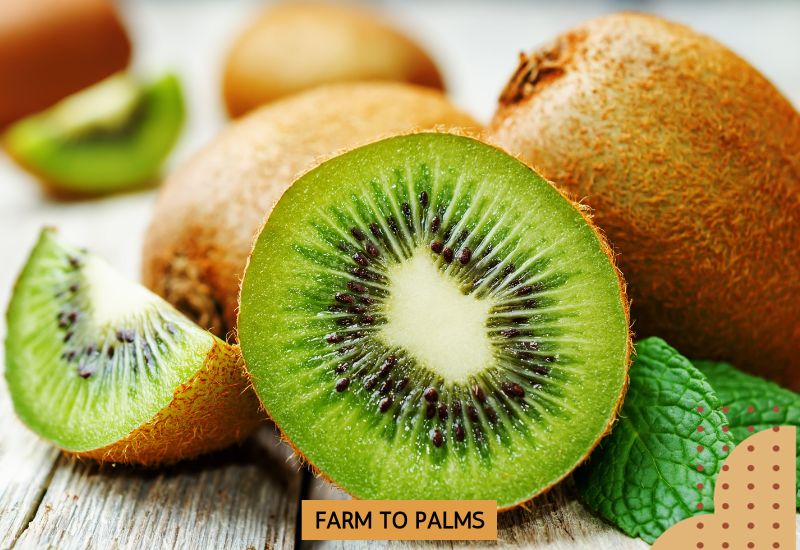
Kiwis exhibit exceptionally high levels of vitamin C, with a 3.5-ounce (100-gram) kiwi providing more than 80% of the daily recommended intake of this essential nutrient. Vitamin C is a potent antioxidant within the body, safeguarding cells against oxidative damage. It also plays a crucial role in immune function, collagen synthesis, and neurotransmitter production.
Furthermore, kiwis boast notable amounts of potassium, copper, vitamin K, folate, and vitamin E. Vitamin E is a fat-soluble nutrient known for its antioxidant properties and significant contribution to immune health.
Besides their nutritional profile, kiwis are characterized by their low calorie, protein, and fat content, while they are rich in dietary fiber.
| Nutrient | Amount |
|---|---|
| Calories | 64 |
| Carbs | 14 g |
| Fiber | 3 g |
| Fat | 0.44 g |
| Protein | 1 g |
| Vitamin C | 83% DV |
| Vitamin E | 9% DV |
| Vitamin K | 34% DV |
| Folate | 7% DV |
| Copper | 15% DV |
| Potassium | 4% DV |
| Magnesium | 4% DV |
Kiwis are immensely nutritious fruits encompassing various vitamins, minerals, and fiber. Of particular note is their exceptional vitamin C content, which is vital for maintaining a robust immune system.
10 Health Benefits of Kiwi Fruit
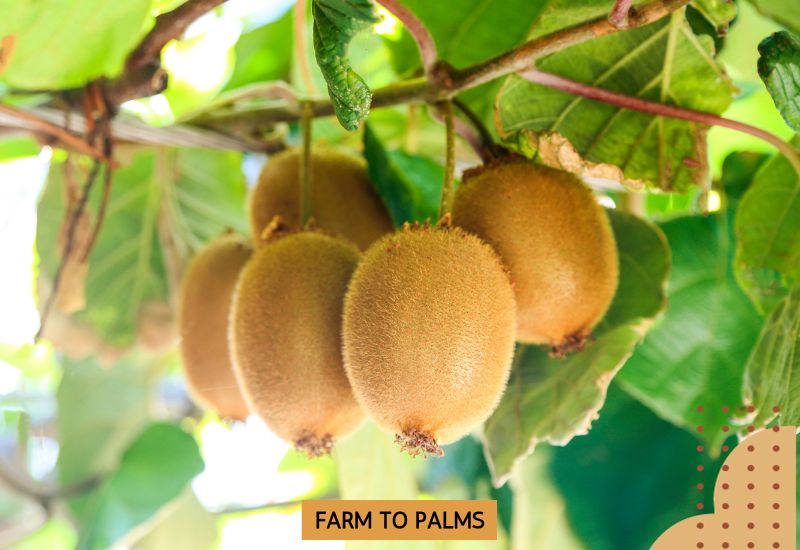
There are numerous compelling reasons to consider incorporating kiwi fruit into your regular snacking routine. Here, we present ten noteworthy justifications for stocking up on this delightful fruit:
Full of Important Nutrients
Kiwis possess a delectable and sweet flavor and a rich assortment of micronutrients, including copper, potassium, vitamin C, and folate.
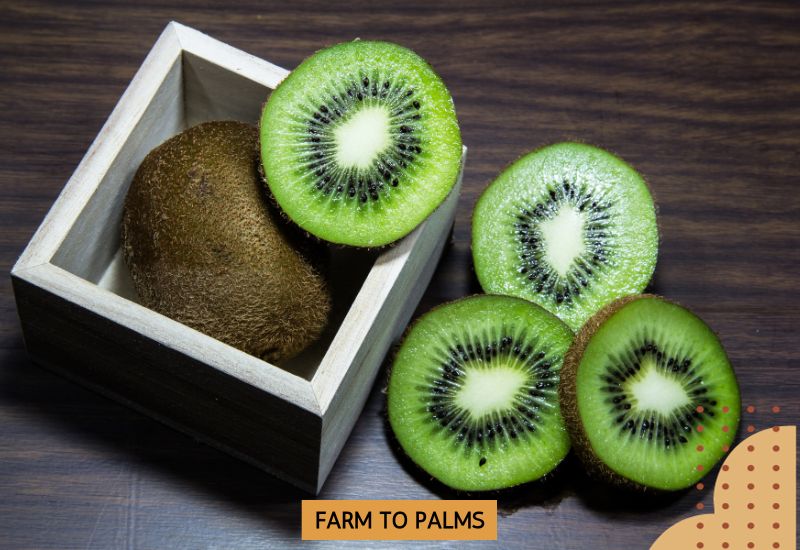
Copper aids in the maintenance of connective tissue and promotes the production of healthy collagen. Potassium plays a pivotal role in cellular fluid balance and contributes to regulating blood pressure.
Furthermore, kiwi fruit boasts an exceptionally high concentration of vitamin C, bolsters the immune system, and serves as a vital antioxidant within the body.
Shown to Benefit Sleep Quality
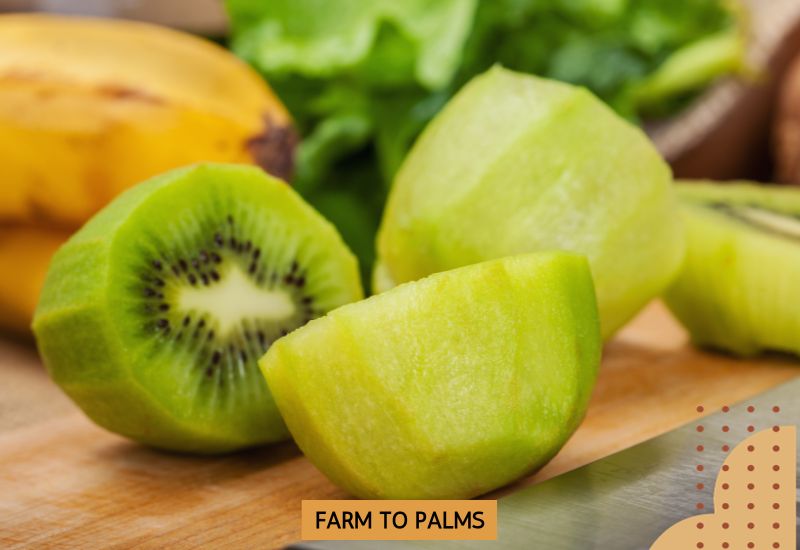
Consuming Kiwi Kiwi has been shown to potentially enhance sleep quality, as indicated by a noteworthy study wherein individuals with sleep difficulties experienced an improvement in their sleep quality after consuming Kiwi Kiwi for four weeks.
Adequate sleep quality is crucial for various facets of health, including mood regulation, weight management, and overall well-being. Furthermore, one’s dietary choices can significantly influence sleep quality through multiple mechanisms.
Kiwi Seeds Contain Essential Fatty Acids
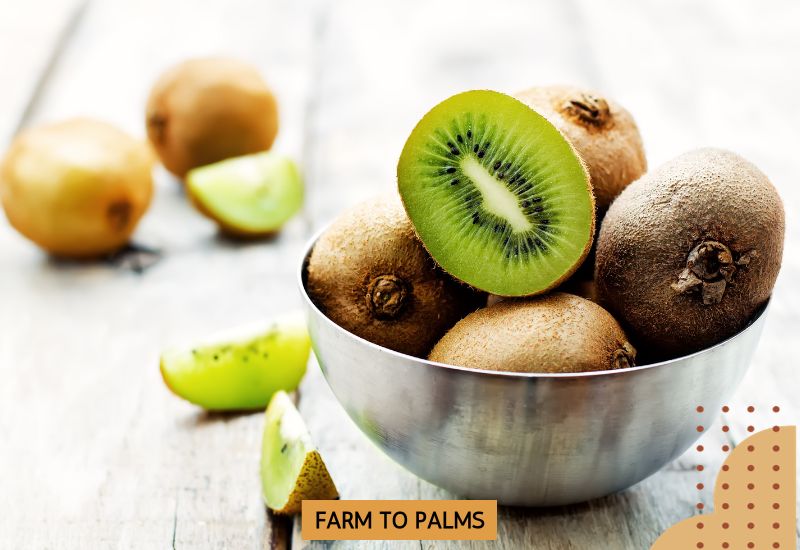
The seeds found within kiwis also contain trace amounts of beneficial fats, specifically polyunsaturated and monounsaturated fats.
While some proponents have suggested that kiwis are a rich source of omega-3 fatty acids, this claim may only partially be accurate. Kiwis actually contain alpha-linolenic acid (ALA), which serves as a precursor to the biologically active omega-3 fats, namely docosahexaenoic acid (DHA) and eicosapentaenoic acid (EPA).
However, the conversion of ALA to EPA and DHA in the human body is limited, resulting in only a minimal percentage being transformed. Consequently, although kiwis contain modest amounts of ALA, they cannot be considered a significant source of EPA or DHA.
May Improve Digestive Health
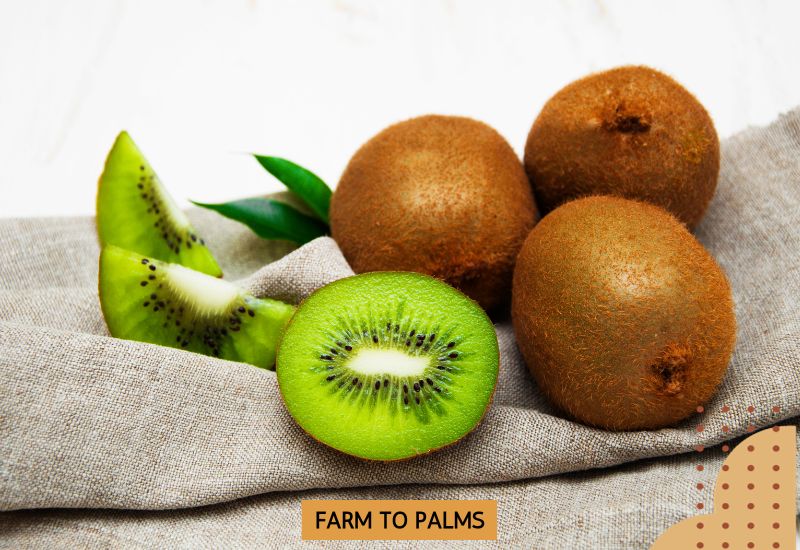
One kiwi fruit contains more than two grams of dietary fiber. This fiber plays a crucial role in promoting a healthy digestive system. Researchers who have studied the fiber composition in kiwis have found that approximately one-third is soluble fiber, while the remaining two-thirds is insoluble fiber.
Soluble Fiber:
- Possesses a viscous or gel-like consistency and can be fermented
- Dissolves when exposed to water
- Serves as a prebiotic, providing nourishment to beneficial bacteria in the gut
Insoluble Fiber:
- Does not dissolve in water
- Cannot be fermented by gut bacteria
- Contributes to the formation of bulky stool, facilitating regular bowel movements
- It may help prevent constipation
It’s worth noting that individuals may exhibit varying sensitivities to dietary fiber. For those who suffer from irritable bowel syndrome (IBS), it may be necessary to exercise caution when consuming fiber-rich foods.
If you require further guidance on incorporating fibrous foods into your diet, it is advisable to seek advice from a qualified nutritionist or expert in the field.
Good Source of Antioxidants
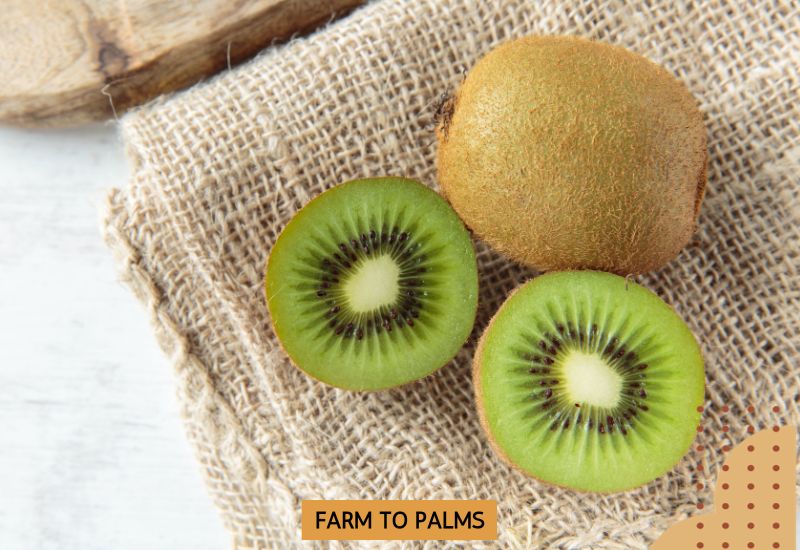
Kiwis are recognized as a notable reservoir of polyphenol antioxidants. Alongside the essential vitamins and minerals previously mentioned, kiwis also harbor phytochemical antioxidants like phenols and carotenoids.
Antioxidants play a crucial role in mitigating the harmful consequences of oxidative stress and free radicals, which have been established as detriments to overall well-being. Notably, phenols may further lower the susceptibility to various age-related ailments.
Can Benefit Skin Health
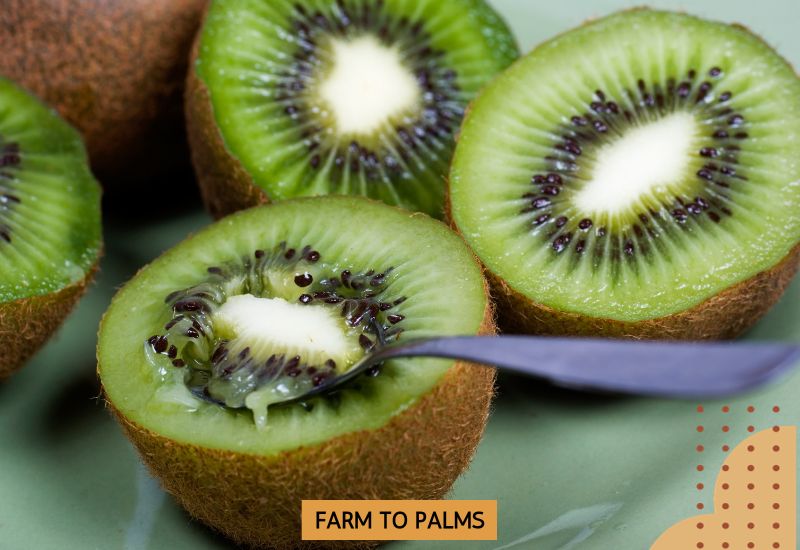
Due to its antioxidant properties and role in collagen synthesis, vitamin C can confer numerous health benefits, particularly concerning skin health and immune function.
A comprehensive review examining the impact of topical application and oral consumption of vitamin C revealed that augmenting vitamin C intake through consuming fruits and vegetables can yield comparable improvements in skin elasticity, complexion, and texture.
Vitamin C benefits skin health through various mechanisms, including upregulating collagen gene expression, downregulating pathways associated with hyperpigmentation, and mitigating oxidative stress-induced damage.
Dermatologists have long utilized topical vitamin C as a treatment modality to achieve a more luminous and evenly-toned complexion. Fortunately, consuming just one Kiwi daily can fulfill the recommended daily vitamin C intake. It is worth noting that, as with any nutrient, excessive vitamin C intake may paradoxically exert pro-oxidant effects. Thus, moderation is advised.
May Support Better Metabolic Health
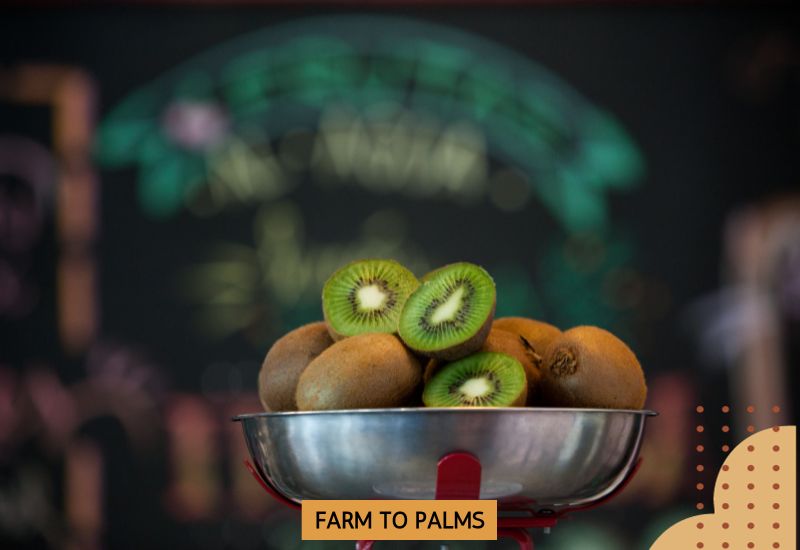
The nutritional composition of kiwis, including their abundance of nutrients, antioxidants, dietary fiber, and low glycemic index (GI), suggests that incorporating kiwi fruit into a well-balanced and nutritious diet may contribute to improved metabolic health.
Notably, a study observed reduced blood pressure among participants who consumed three kiwis daily for three weeks. Furthermore, other research indicates that kiwi fruit’s low GI and fiber content make it a generally safe choice for promoting optimal blood sugar responses. For enhanced glucose support, combining Kiwi with a protein source is advisable.
While the metabolic advantages of kiwi fruit may vary depending on individual physiological factors, there is promising evidence suggesting its potential health benefits. If you want to understand Kiwi’s specific impacts on your health, consulting a registered dietitian would be beneficial.
Can Boost Your Immune System
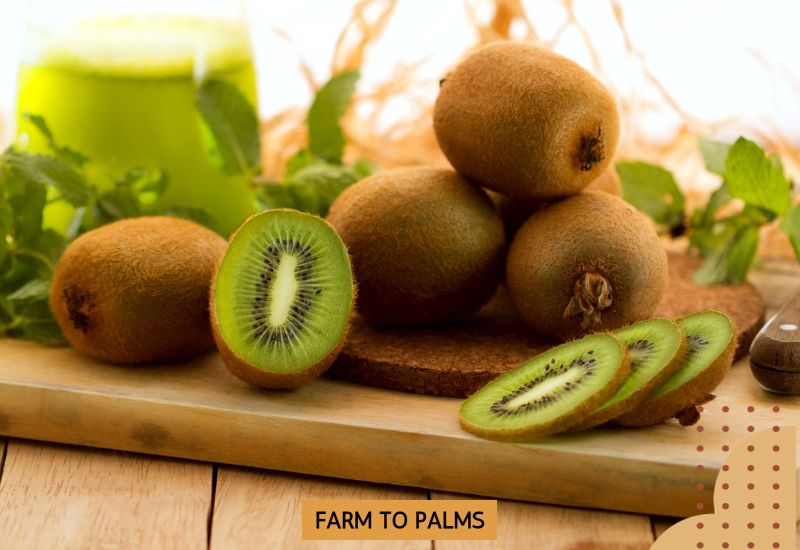
As previously stated, vitamin C is pivotal in maintaining optimal immune function. Its supportive effects on the immune system are attributed to its ability to enhance the antimicrobial activity of specific immune cells.
This significance lies in the potential reduction of cold duration through increased intake of this beneficial vitamin. Nevertheless, it is essential to note that doses exceeding the estimated requirements do not confer additional immune benefits for most individuals. For instance, a kiwi fruit contains approximately 75 mg of vitamin C.
May Improve Asthma Symptoms
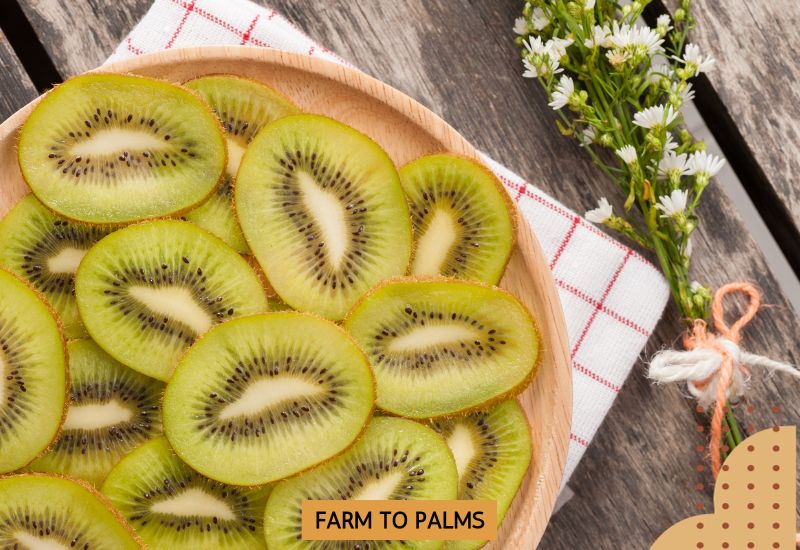
Vitamin C has been shown to positively impact the immune system by mitigating respiratory infections and associated symptoms. Notably, a study exploring the effects of vitamin C in children experiencing wheezing revealed that consuming fruits rich in vitamin C may reduce wheezing symptoms.
Can Be Good for Cardiovascular Health
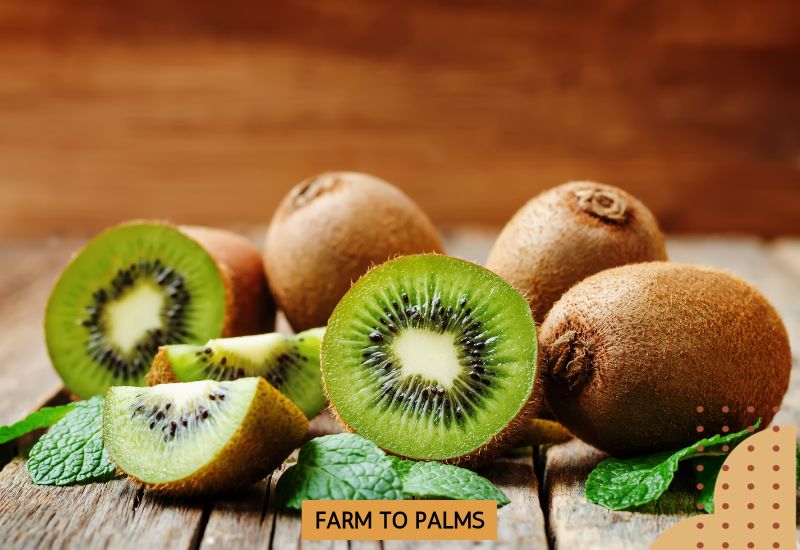
According to several studies, Kiwi fruit has been found to support cardiovascular health. These studies have highlighted the positive effects of kiwis on heart health, attributing these benefits to their antioxidant and non-antioxidant properties.
The advantages of consuming kiwis include reducing platelet hyperactivity and lowering the risk of clot formation. Additionally, kiwis have been shown to positively impact blood pressure regulation and promote healthier blood lipids or fat levels.
Kiwifruit, carbohydrate availability, and the glycemic response
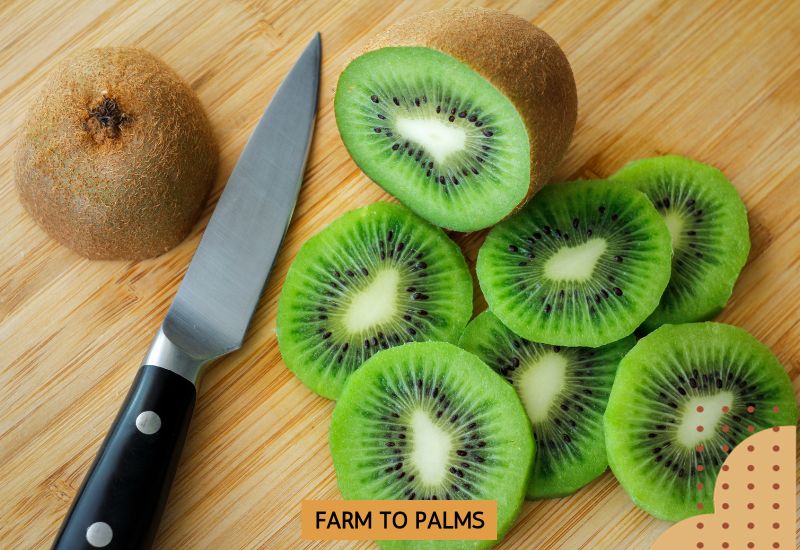
A significant portion, approximately 10%, of the dry weight of kiwifruit is composed of primary cell walls. The available carbohydrates in kiwifruit account for about 80% of its dry matter and consist of glucose, fructose, and sucrose.
Additionally, around 10% of kiwifruit’s dry weight comprises digestible protein. The nonstarch polysaccharide nature of the cell wall component renders it indigestible in the stomach and small intestine.
Consequently, this component increases relative concentration within the gut lumen, where its physicochemical properties play a potentially important role in modulating carbohydrate digestion and absorption.
Upon release from the structural constraints of the fruit, the dietary fiber within kiwifruit swells to four times its original volume during in vitro digestion.

Upon settling into a densely packed yet uncompressed state, as observed within the gut, the digested remnants of kiwifruit significantly reduce the rate of glucose diffusion by approximately 40%.
Moreover, they profoundly hinder digestion mixing, particularly when accompanied by a low background concentration of soluble viscous polysaccharides.
In vitro assessments of kiwifruit carbohydrates have provided estimations of their glycemic index (GI), which indicates a low value. In vivo estimates further support this finding.
Considering the high water content of kiwifruit, a 100g serving of this fruit affects blood glucose, equivalent to approximately 5g (or one teaspoon) of glucose. Therefore, kiwifruit have a low glycemic impact and are suitable for individuals with diabetes.
How to eat Kiwi?

Many individuals derive pleasure from consuming raw kiwis. Additionally, these fruits can be creatively incorporated into a wide array of sweet and savory recipes.
For most kiwi species, peeling the fruit before consumption is recommended. However, specific varieties such as Zespri SunGold kiwis possess an edible outer peel, allowing for their entire consumption.
Kiwis can be savored independently as a standalone fruit or into various dishes, including fruit salads. Some suggestions for incorporating kiwis into culinary creations include:
- Combining sliced kiwis with berries and bananas to craft a fruit salad rich in nutrients.
- Use diced kiwis as an ingredient in your preferred salsa recipe.
- Enhancing smoothie bowls and Greek yogurt by adorning them with sliced kiwis.
- Incorporating fresh kiwis into smoothies and protein shakes.
- Adding diced kiwis to salads to introduce a sweet and tangy element.
- Blending kiwis into homemade salad dressings.
- Crafting marinades for meats and fish by combining kiwis with Worcestershire sauce, soy sauce, garlic, and olive oil.
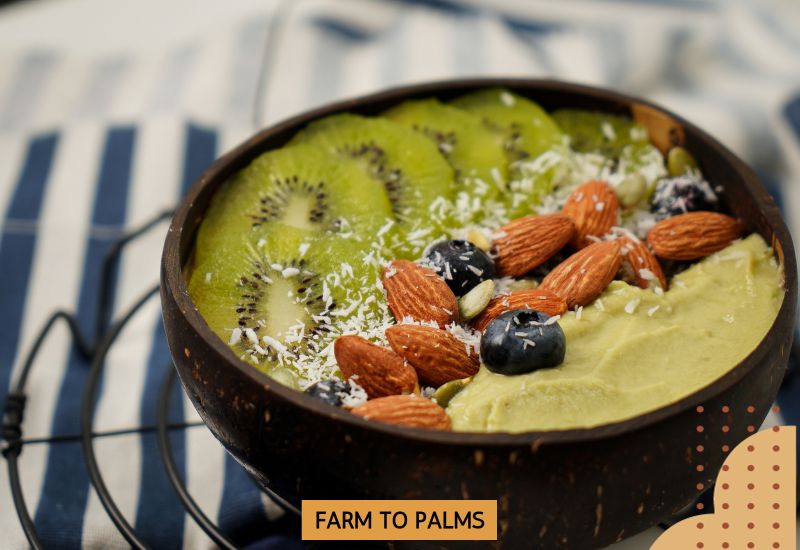
These suggestions merely scratch the surface of the myriad possibilities for utilizing kiwis in the kitchen. Feel free to incorporate kiwis into your favorite sweet and savory recipes.
In summary, kiwis can be enjoyed as a standalone fruit or used in marinades, dressings, smoothies, and salsas.
Why Is Kiwi Fruit Expensive ?
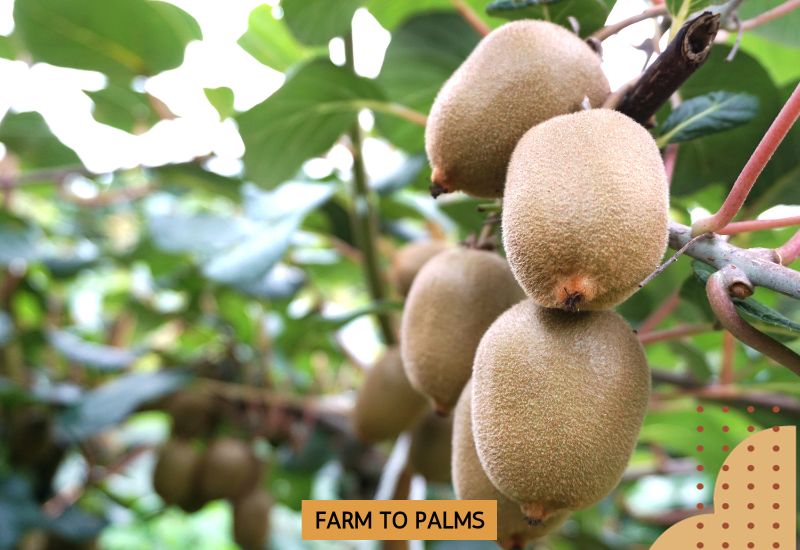
Kiwi is an expensive fruit due to several factors. Firstly, it perishes quickly and needs to be imported into most countries, which incurs additional costs such as taxes and transportation. China, Italy, New Zealand, Iran, and Chile are leading kiwi producers. The involvement of multiple intermediaries in the distribution process also leads to a significant increase in the final price of kiwifruit.
The high demand and limited supply of kiwi contribute to its high price. The appeal of kiwi has grown over the years, causing the demand to exceed the supply in many parts of the world. Additionally, kiwi has a short shelf-life and is prone to spoilage during transportation, further affecting its price.
The nutritional value of kiwi also plays a role in its cost. It is rich in essential vitamins and minerals, such as Vitamin C, dietary fiber, and folate, making it a desirable fruit with health benefits.
In conclusion: The perishable nature of kiwi, importation costs, high demand, low supply, short shelf-life, and nutritional value all contribute to its high price.
Kiwis are undeniably a powerhouse of nutrients, offering numerous health benefits. Their exceptional vitamin C content can help boost your immune system and promote collagen synthesis for healthy skin. Kiwis are also rich in antioxidants, which can protect against oxidative stress and age-related ailments.
Moreover, Kiwi Fiber can aid digestion and contribute to better metabolic health. These remarkable fruits have even improved sleep quality and alleviated asthma symptoms. To enjoy the delightful taste and benefits of kiwis and other fresh fruits, it is highly recommended to visit Farm to Palms supermarket and stock up on these nutritious treats.

